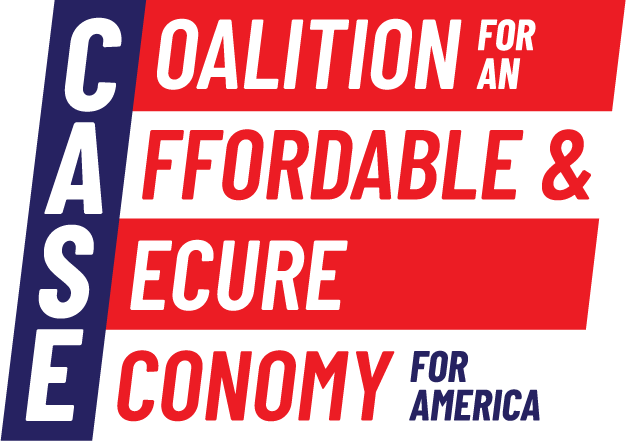“This is not good for South Dakota farmers and ranchers. It’s gonna cost us more… This is just not a good deal for agriculture in any shape of the imagination.”
Tariffs implemented during President Trump’s first term previously hit South Dakota hard, especially farmers relying on exports like soybeans and pork. Retaliatory tariffs made things worse, and while government aid helped, it didn’t fix the bigger issue – unstable trade relationships.
Now, years later, those same challenges are back, with South Dakota’s economy still feeling the ripple effects and facing even more uncertainty.
Tariff Impact On South Dakota During Trump’s First Term
- South Dakota lost an estimated $500 million to $750 million in export value from retaliatory tariffs in 2018 and 2019. (U.S. Department of Agriculture, 3/7/22)
- South Dakota soybean farmers lost on average $50,000 apiece as a result of the 2019 retaliatory tariffs. (Dakota Free Press, 5/3/25)
- According to the U.S. Department of Agriculture, retaliatory tariffs led to $13.2 billion in losses for U.S. industries between 2018 and 2019, with produce and meat, such as soybean, sorghum and pork from South Dakota being the most affected. (U.S. Department of Agriculture, 3/7/22)
- The Congressional Research Service reported that China’s retaliatory tariffs on soybeans in Trump’s first term restricted access to the largest U.S. soybean export market. (Congressional Research Service, 1/29/19)
Tariff Impact On South Dakota Today
- New 25% tariffs on Canada and Mexico will severely impact South Dakota’s farming community, as the state’s top agricultural markets export 75% of their product to these two countries. (South Dakota Public Broadcasting, 2/6/25)
- South Dakota’s agriculture sales to Canada totaled $666 million in 2023, and in 2022, China purchased $1.2 billion worth of grains and oilseeds from South Dakota farmers. This export income could be diminished by retaliatory tariffs. (The South Dakota Standard, 3/3/25)
What South Dakotans Are Saying About Tariffs Today
- Doug Sombke, President, South Dakota Farmers Union and Conde Farmer: “This is not good for South Dakota farmers and ranchers. It’s gonna cost us more … This is just not a good deal for agriculture in any shape of the imagination.” (South Dakota Public Broadcasting, 2/6/25)
- “I think if you’re in the soybean business, the corn business, any cattle, livestock business, you should be concerned. Most people are. I think it’s the uncertainty we’re all concerned with. If there’s some end game that we knew, if there’s light at the end of the tunnel, but we don’t know what that is.” (South Dakota Public Broadcasting 3/7/25)
- Scott VanDerwal, President, South Dakota Farm Bureau: “Our policy actually calls for other negotiating methods rather than tariffs. We would rather see him use those as a last resort.” (South Dakota Public Broadcasting 3/7/25)
- Kevin Deinert, President, South Dakota Soybean Association: “The old saying a few years ago was … two out of every three soybean rows goes to China, so for our area for South Dakota it’s a very large export market.” (KOTA Territory, 3/11/25)
What South Dakotans Said About Tariffs During Trump’s First Term
- Doug Sombke, President, South Dakota Farmers Union and Conde Farmer: “It’s not cheap. This is the kind of thing we can’t afford to have. Not in a state like South Dakota.” (Argus Leader, 7/17/18)
- Brandon Wipf, Board Member, South Dakota Soybean Growers and Huron Farmer: “Brandon Wipf … told DTN a few days ago that the effect of the Chinese tariff on U.S. soybean farmers could be $100 per acre. The math on that: a reduction in price of $2 per bushel across a farm that raises beans that yield 50 bushels per acre. That’s more than enough to comprise any profit that had been there.” (Capital Journal, 7/9/18)
- Kevin Scott, Secretary, American Soybean Association and Valley Springs Farmer: “I would like to tell the president, ‘Man, you are messing up our market’ … If we lose those Chinese and Mexican markets, it will be hard to get them back.’” (The New York Times, 7/4/18)
- Glenn Muller, Executive Director, South Dakota Pork Producers Council: “We are hopeful that something can be worked out so that we don’t see any additional impacts. We’ve already seen, based on the rumor, tremendous drop in the markets. We’re hoping that this can be resolved relatively soon so that we don’t see additional setbacks in the market, because our producers are working at a very minimal margin and a lot of them are in a negative profit margins at this point with a depressed market.” (South Dakota Public Broadcasting, 7/3/18)

